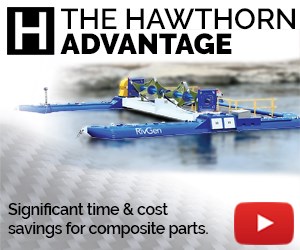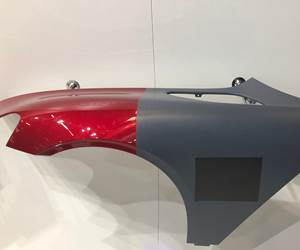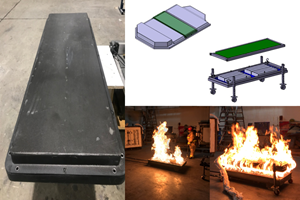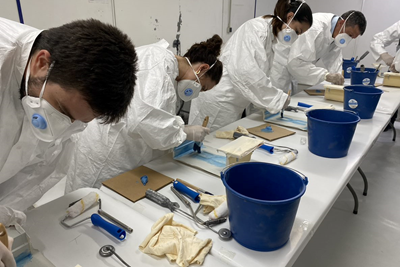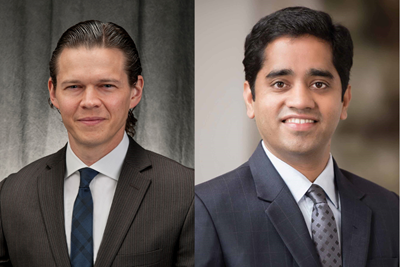SPE ACCE announces new half-session, panel addressing composites sustainability
Kari Bliss, principle sustainability at Padnos, and Dr. David L. Wagger, chief scientist and director of environmental management at the ISRI, along with a separate panel discussion, will explore composite circularity advancements for EOL vehicles.
The executive planning committee for the Society of Plastics Engineers (SPE) Automotive Composites Conference & Expo (ACCE) is announcing a special session “End of Vehicle Life Today and Sustainability Solutions for the Future” including two keynotes and a panel discussion with sustainability experts and industry leaders for the Sept. 6-8, 2023, event in Novi, Mich., U.S. The program will address sustainability concerns about composite materials in automotive applications and feature solutions for managing their proper handling at end of life (EOL).
“Automotive OEMs, Tiers and material suppliers have to work together to capture battery materials at EOL due to the scarcity of these materials, and pending regulations in Europe and Asia are accelerating the shift to managing plastics and composites for sustainability,” says Adam Halsband, managing director of Forward Engineering NA (Royal Oak, Mich., U.S.) who is assisting Dr. Sara Simon, project engineer with Forward Engineering and ACCE executive committee member. Simon proposed and is managing this session.
The half-day session will include the following keynote presentations:
- “Circularity for end of life vehicles,” by Kari Bliss, principle sustainability at Padnos (Holland, Mich., U.S.)
For decades, industrial recyclers have shredded cars to capture ferrous and non-ferrous metals. The remaining plastic, rubber, wood, paper, textile, leather or glass is a complex mixture known as auto shredder residue (ASR). In the U.S., more than 5 million gross tons (11,200,000,000 pounds) are sent to the landfill each year. ASR is used as landfill cover to reduce odor and help capture methane gas. Learn about new advancements to separate and capture the valuable plastics from EOL vehicles. Successful trials are complete, and the first million pounds have been produced.
Speaker biography: Bliss leads sustainability at Padnos, an industrial recycler of paper, plastics, metals and electronics. She is a GreenBiz-certified professional, leading the Sustainability Transformation, GRI Certified Sustainability Professional, a board member of the Michigan Sustainable Business Forum and the treasurer of the SPE Recycling Division. She is a results-driven leader skilled at bringing stakeholders together to develop sustainability initiatives and solve complex circular economy challenges.
- “Recycling plastics from end of life vehicles: The final frontier?” by Dr. David L. Wagger, chief scientist and director of environmental management at the Institute of Scrap Recycling Industries (ISRI, Washington, D.C., U.S.)
The success of recycling EOL vehicles is dependent on their significant recyclable metal content and technologies for profitably recycling ferrous and nonferrous metals. The non-metallic content of these vehicles, especially plastics, has typically been sent at cost to landfills for disposal as solid waste, due to lack of recycling markets for those materials. Despite substantial research and other efforts, plastics from EOL vehicles are still not being recycled to any significant degree. If this persists, the plastics content of vehicles could become problematic for recycling due to economic and other pressures. This presentation will give an overview of recycling of EOL vehicles and explore potential pathways for enabling their recycling.
Speaker biography: Wagger is chief scientist and director of environmental management at the ISRI. He has more than 30 years of experience in environmental engineering, policy, regulation, science, and technology, including 18 years at ISRI. Wagger assists members with environmental compliance and management and represents ISRI and the recycling industry on federal and state environmental regulatory matters. He also serves on external panels and working groups on R&D, science and sustainability, including as a project group co-chair of the Basel Convention Plastic Waste Partnership Working Group, member of the Strategic Advisory Committee of the REMADE Institute and commissioner on the GSA Acquisition Policy Federal Advisory Committee. He holds a B.S. and a Ph.D. in chemical engineering from, respectively, the University of California, Berkeley, and the Massachusetts Institute of Technology where he was a Fannie and John Hertz Foundation Fellow and minored in political science.
A panel discussion will include:
- Eric Walker, chief engineer, frame materials, Honda Development & Manufacturing of America LLC (Marysville, Ohio, U.S.)
- Amar Mohanty, professor and research chair of sustainable biomaterials, University of Guelph (Ont., Canada)
- Mehdi Tajvidi, associate professor of renewable nanomaterials School of Forest Resources, Advanced Structures and Composites Center and Forest Bioproducts Research Institute at University of Maine (Orono)
- Kari Bliss, Padnos
- David Wagger, ISRI
For more information about SPE ACCE 2023, read about the four announcement keynotes.
Related Content
Troubleshooting thermal design of composite battery enclosures
Materials, electrical insulation and certification are all important factors to consider when optimizing electric battery performance against potential thermal runaway.
Read MoreThe state of recycled carbon fiber
As the need for carbon fiber rises, can recycling fill the gap?
Read MorePlant tour: Joby Aviation, Marina, Calif., U.S.
As the advanced air mobility market begins to take shape, market leader Joby Aviation works to industrialize composites manufacturing for its first-generation, composites-intensive, all-electric air taxi.
Read MorePrice, performance, protection: EV battery enclosures, Part 1
Composite technologies are growing in use as suppliers continue efforts to meet more demanding requirements for EV battery enclosures.
Read MoreRead Next
Saertex presents joint innovations in rail during Stadler, Tallers Xuquer workshop
The textile reinforcement manufacturer was invited to Spain to present its composite materials for use in the rail sector through a four-day workshop.
Read MoreSPE ACCE 2023 presents fourth keynote
Dr. Ryan Hahnlen and Dr. Srikanth Pilla will be sharing their collaborative work on a cost-effective CFRTP door assembly, and what the application represents for lightweighting the automotive industry.
Read MoreBio-based epoxy, recycled materials increase sustainability of all-terrain snowboards
Aiming for a smaller environmental footprint while maintaining high performance, Salomon’s Highpath snowboard line incorporates bio-based epoxy, glass and basalt fiber stringers and recycled materials.
Read More




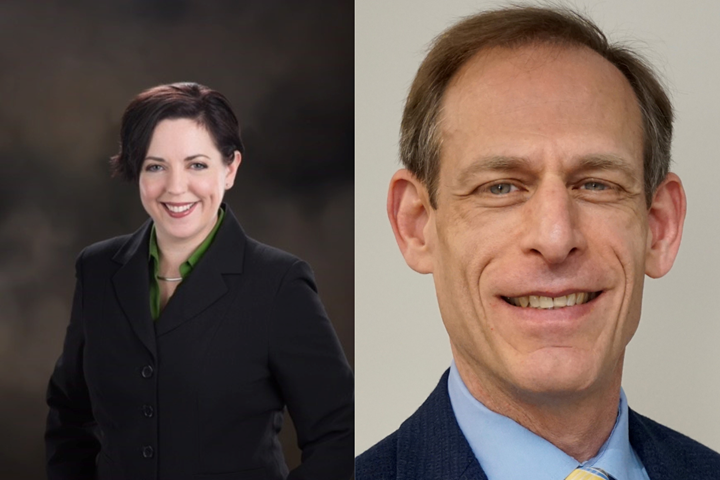



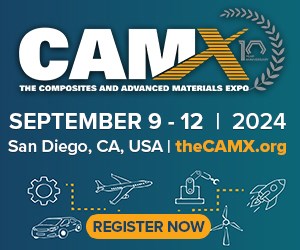




.jpg;maxWidth=300;quality=90)




